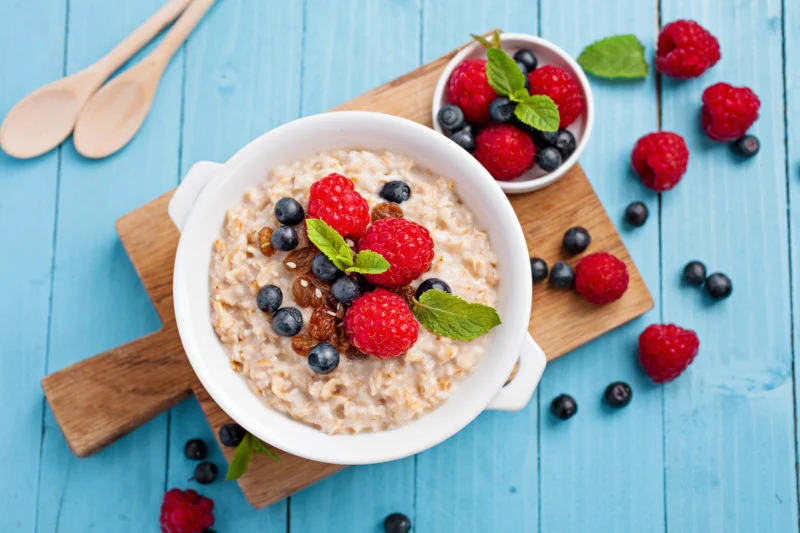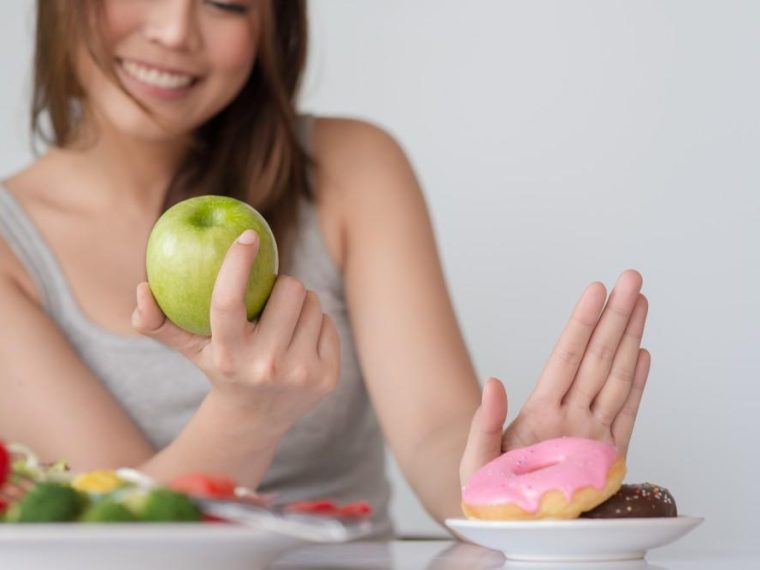Do you have a bowl of fruit for breakfast every day? Science reveals that that may not be such a good idea.
Fruit is one of the favorite foods of many people. The colorful stalls selling cups of fruit and smoothies on the street are part of cultural identity.
Table of Contents
From the great variety of fruit trees planted in the country, we obtain one of the greatest sources of vitamins and minerals, but also something else: sugar. ‘Plants transform part of their glucose into a supersweet molecule called fructose, which is 2.3 times sweeter than glucose,’ better known as Glucose Goddess . ‘The purpose of fructose is to make fruit taste irresistible to animals.’ This to propagate its seeds and ensure its survival.
When plant fructose temporarily binds with glucose, another molecule called sucrose is obtained. If its name doesn’t sound familiar to you, it’s because we really know it by its colloquial name: table sugar. Yes, the one we put in little jars for coffee. ‘Nature intended for us to consume glucose from a specific source: plants,’ nutrition explains. Where fiber is also obtained and with which we slow down the absorption of glucose into the blood.
What Mother Nature did not take into account is that by the 21st century we would be surrounded by products that hide sugar on their labels. Yogurts, juices, sweets, bread, sauces, you name it, the vast majority have added sugar and little fiber. ‘Fiber is often removed in the creation of processed foods because its presence is problematic if you are trying to preserve foods for a long time.’ A few years ago, human beings began planting plants so that their fruits were very sweet. This is how genetically modified fruits emerged to increase their size and improve their flavor. Let’s say they are those pretty fruits from the supermarket.
Now not everything is our fault, our obsession with sweets comes from many years ago, specifically from the Stone Age. In those times, a sweet food meant that it was safe to eat and since there was little food, fruits were salvation. ‘We evolved feeling pleasure when trying something sweet,’ says the expert. Sugar went from being a privilege for the upper classes in the 19th century to practically all of us being addicted to sugar two centuries later. Always unconsciously looking for that sweet taste of fruits in food (like our Stone Age ancestors). ‘Sweet and dopamine give us a feeling of eternal reward,’ says expert.

This excess sugar consumption put us in a serious health crisis. ‘The National Health and Nutrition Survey (Ensanut) 2021 indicates that 12 million 400 thousand people suffer from diabetes, a chronic disease that can cause irreversible damage to eyesight, kidneys or skin,’ explained the head of Internal Medicine at the Hospital. National Homeopathic (HNH) of the Ministry of Health. According to the Ministry of Health. ‘This disease occurs when the pancreas does not produce enough insulin or the body does not use it effectively to regulate blood sugar. The effect of uncontrolled diabetes is hyperglycemia, which means increased blood sugar that, over time, seriously damages nerves and blood vessels.’
For many, the problem begins at breakfast. ‘You guys love fruit juices and smoothies. It’s something that must stop,‘ she said convinced in an interview . Culturally, we are used to eating a lot of fruit, but it is not the best idea to start the day after having fasted for almost 12 hours. This only causes a huge glucose spike, as we digest faster. And if you’ve ever wondered why after breakfast you feel without energy and hungry a few hours later, Ding, ding, ding! Yes, fruit could be the possible culprit.
How to eat fruit to avoid glucose spikes
The expert recommends eating the whole fruit. ‘In addition, we usually eat the whole fruit more slowly and in smaller quantities than if we had a juice or smoothie.’ The scientist explains that in a whole piece of fruit there is more fiber, which reduces the abrupt spike in glucose. Apples, blueberries, blackberries and raspberries are good ideas, unlike mangoes and bananas which you have to peel off. ‘Avoid nuts or fruit juices, no honey or agave or other sugars. A little stevia is fine if you need to sweeten something.’
It is best not to eat the fruit on its own and think of it as a dessert if you feel too much need for something sweet after eating. As much as possible, the expert recommends starting all meals with vegetables that are full of fiber and protein and then eating carbohydrates. ‘You may have heard that fruit after a meal is bad because it rots in your stomach!’ expert explained . ‘That’s right? Well, no. Nothing can rot in our stomach.’ So don’t worry.

Nutritionist, suggests mixing fruit with other foods. ‘With cottage cheese or Greek yogurt,’ she tells . ‘Both options are high in protein, so they will also help prevent glucose spikes from occurring.’ She also suggests eating an egg, turkey breast roll-ups, or a protein shake first . ‘Another option could be to mix the fruit with healthy fats such as peanut butter, almonds, walnuts,’ she explains. She also comments that some of her patients add honey, granola or oats to fruit, but these are still carbohydrates. ‘So fruit must be covered with healthy fats and protein, don’t forget,’ she concludes.





2 Comments
[…] Including eggs in breakfast is one of the theories that I most want to put into practice. But it is not always possible (rush, as always, does not help). However, several leisurely breakfasts during the holidays – when I almost always have it in the form of a quiche – and some improvised late breakfasts that served as a meal – call it brunch – were enough for me to realize that I should include this food much more often. in my daily breakfasts. […]
[…] untreated carrots are the best option, and treatment should be started two to three months before summer , so that the effects are noticeable right at the beginning of the summer season. However, care […]